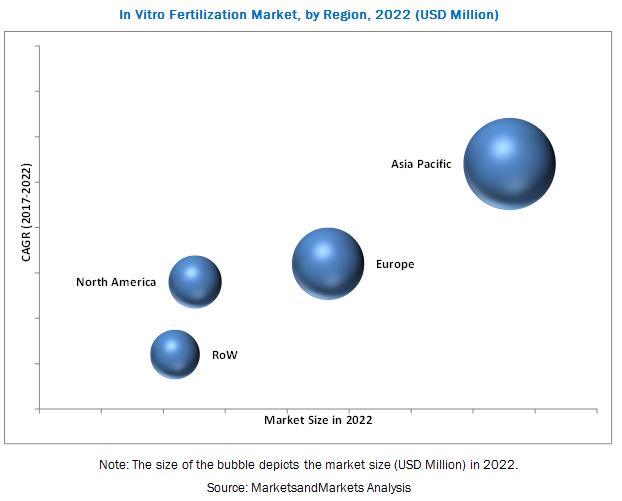The growth of this market include growth in the median age of first-time motherhood, declining fertility rates, rising male infertility, rise in consumption of alcohol and cigarettes, and growing public awareness about infertility and the available treatment options.
By product, the in vitro fertilization market is categorized into reagents and equipment. Reagents are further segmented into cryopreservation media, semen processing media, ovum processing media, and embryo culture media. Embryo culture media is expected to hold the largest share of the IVF reagents market and is also projected to grow at the highest rate during the forecast period. The large share of this segment is attributed to the increase in awareness of infertility treatment and diagnosis.
The equipment segment is further classified into imaging systems, sperm separation systems, cabinets (workstations), ovum aspiration pumps, incubators, micromanipulator systems, cryosystems, gas analyzers, laser analyzers, anti-vibration tables, accessories, and witness systems. However, sperm separation systems are expected to witness the highest growth, due to factors such as the rising use of donated sperm in IVF procedures.
Geographically, the in vitro fertilization market in Asia Pacific accounts for the largest share of the global market, followed by Europe. The large share and high growth rate of the APAC region can be attributed growth in the median age of first-time motherhood, rising infertility rates, growing prevalence of PCOS, increasing incidence of obesity, rise in fertility tourism, and government initiatives.
However, the high cost of the procedure and restrictive regulations and ethical concerns is likely to restrain the growth of the market during the forecast period.
Sample Report –
CooperSurgical (US), Vitrolife (Sweden), Cook Medical (US), Irvine Scientific (US), and Thermo Fisher Scientific (US) are the key players in the in vitro fertilization market. Other players include EMD Sereno (US), Genea Limited (Australia), Esco Micro (Singapore), IVFtech (Denmark), Rocket Medical (UK), Nidacon International (Sweden), Lotus Bio (Israel), Eppendorf (Germany), Okolab (Italy), IKS International (Netherlands), Hunter Scientific (UK), Thomas Medical (US), Labotect (Germany), Shivani Scientific (India), Olympus Corporation (Japan), and RI.MOS. (Italy).



